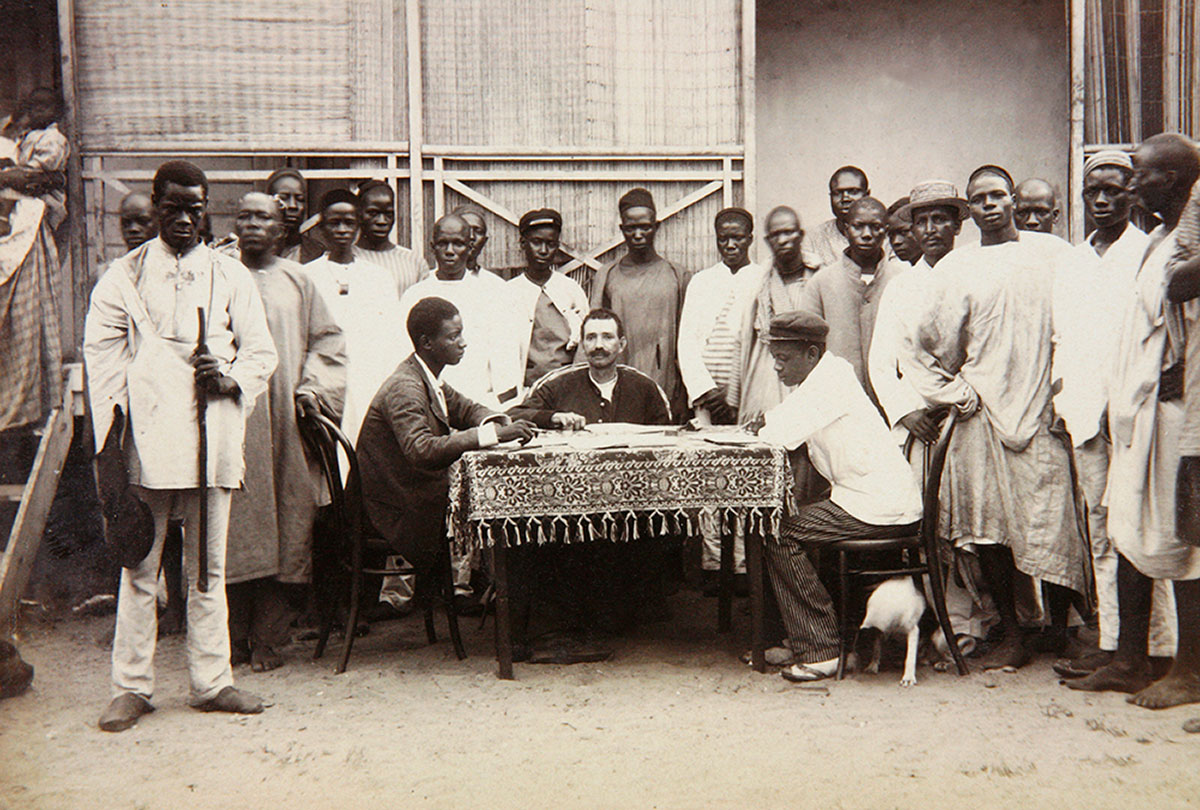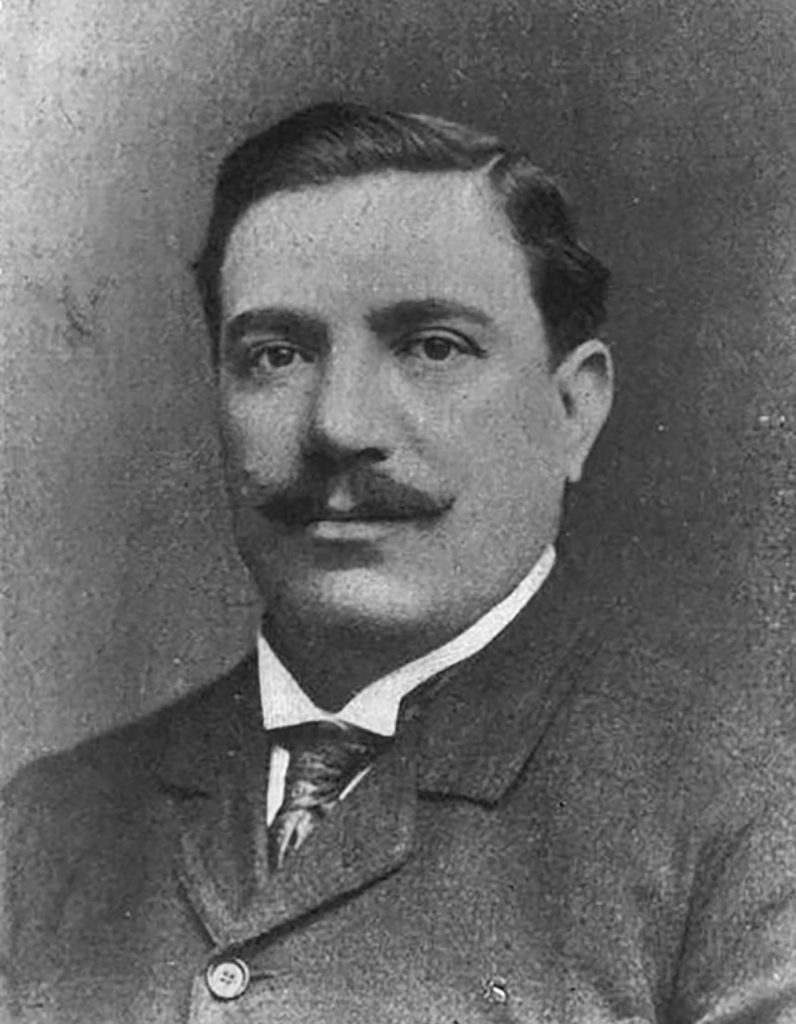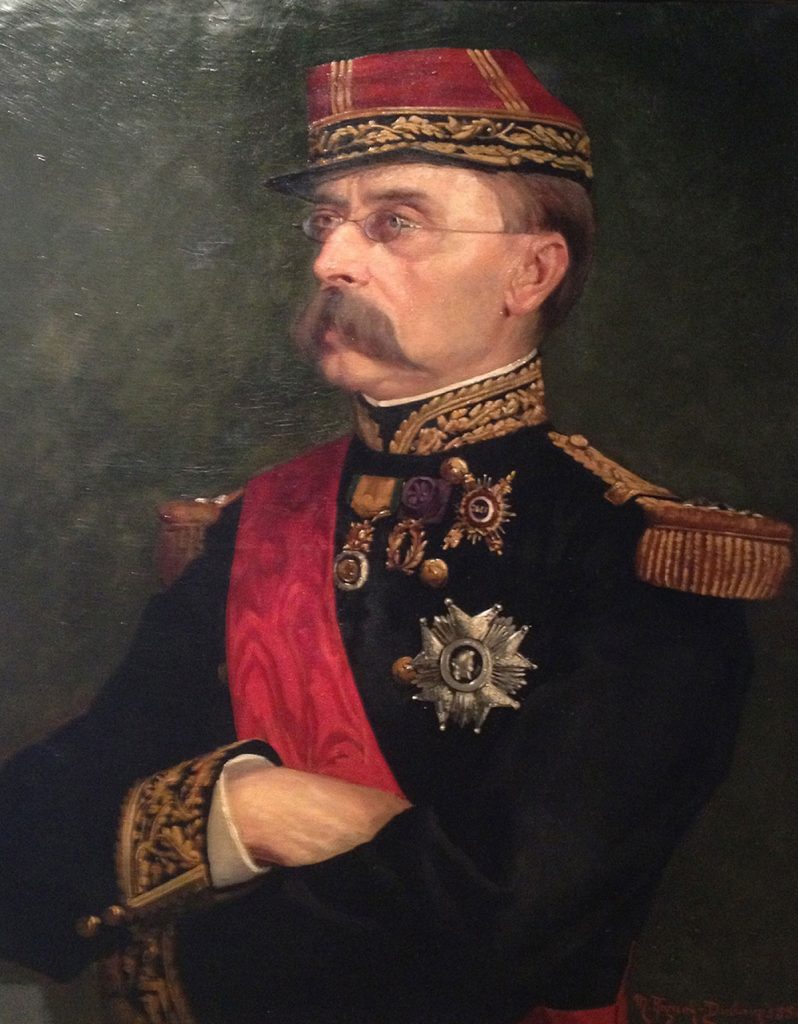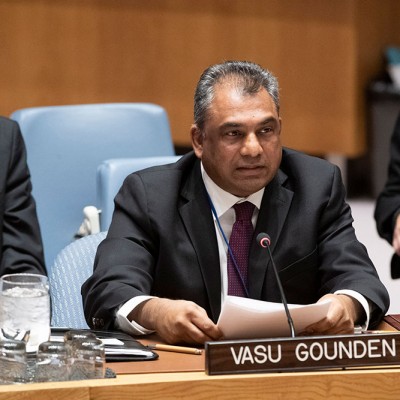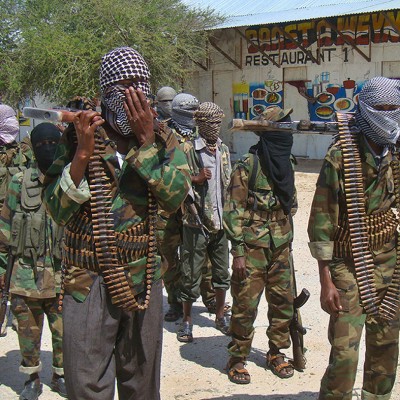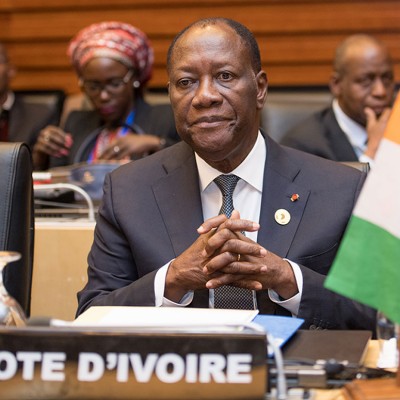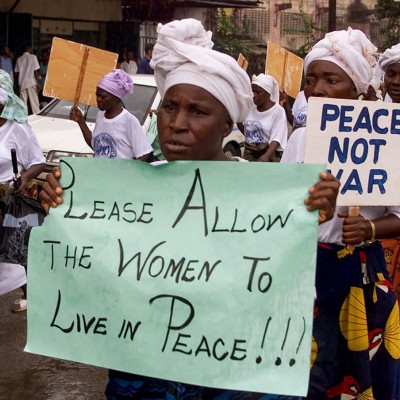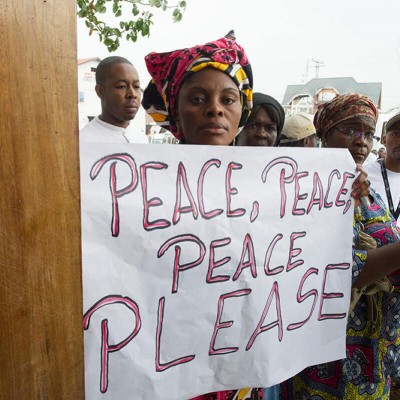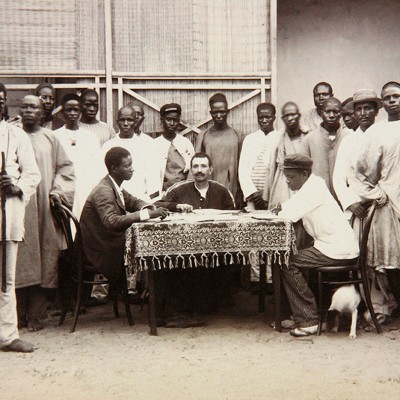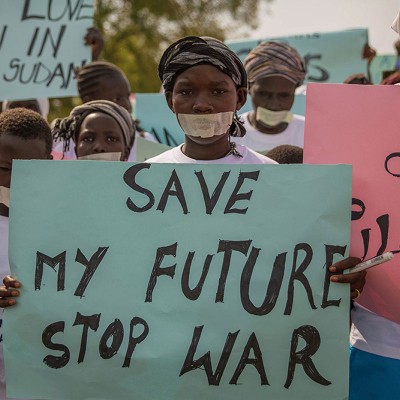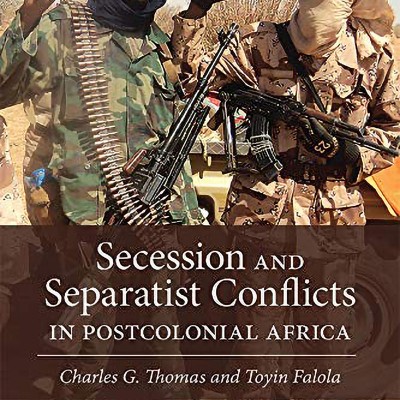Introduction
Imperial powers such as Rome, Persia, Japan and China have justified their conquests as a benefit to those that were conquered by virtue of bringing a superior civilisation to their world.[1] Among imperial powers, one of the most strident were the Second and Third French Republics.[2] The civilising mission – or what French historian Raoul Girardet refers to as “colonial humanism”[3] – came to define French colonial statecraft in the early 19th century crusade to improve the lives of people who France saw as backward in Asia, Africa and the Pacific. For intellectuals such as Leroy-Beaulieu, civilisation was to be spread through commerce, trade and exchanges between people, rather than through conquest.[4] By the early 1800s, the republican ideals that inspired the French Revolution were slowly abandoned for a more forceful assimilationist policy exemplified by colonial expansionist policies. According to Jules Brévié, governor-general of French West Africa from 1930 to 1936 and of French Indochina from 1936 to 1939, the most important task for the French was to bring about a cultural renaissance to the indigenous people.[5] Brévié called for a redefined mission with a focus on teaching colonised subjects to live according to “authentic African traditions”.[6] As with the British before them, French policy adapted to the local context and shifted towards a more “indirect mode of rule”,[7] casting foreign rule as the protectors of indigenous cultures.
This article analyses the French imperial project in Africa, with a focus on the Federation of French West Africa (consisting of today’s Benin, Burkina Faso, Côte d’Ivoire, Guinea, Mali, Mauritania, Niger and Senegal). It outlines differences and similarities between the French mode of direct rule and the British mode of indirect rule. To understand the methodology of rule, one must first understand the system of knowledge production that informed, shaped and guided the colonial project. A policy change occurred after the French experienced a crisis of empire, which ushered in fundamental transformations before World War I (1909 and 1912) and the interwar years between 1918 and 1939 (from “assimilation” to that of “association”). The new policy shifted the focus from antagonism towards Islam to collaboration with Islamic representatives, from civilisations to conservation, from a focus on progress to law and order, and a preoccupation with local customs while managing social and cultural differences (pluralism).[8] This article is offered as an important contribution to the political and intellectual history of the largest colonial state in Africa: the Federation of French West Africa.
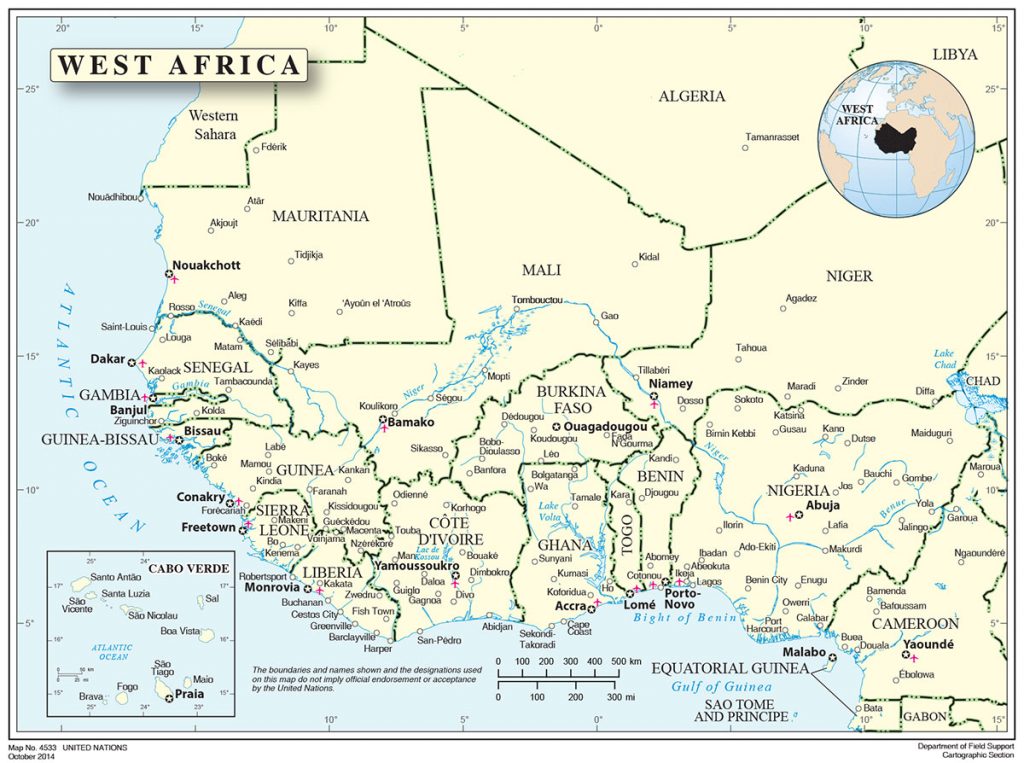
Direct and Indirect Rule: Define, Divide and Conquer
Colonial projects in the Americas, Asia and Africa rested on the assumed superiority of race and culture transmitted through education and the perfectibility of humankind. In the French view, given this logic, one could slowly evolve if one were properly taught French values, adopted French culture, became an evolué (a label used during the colonial era to refer to a native African or Asian who had “evolved” by becoming Europeanised through education or assimilation and had accepted European values and patterns of behaviour) or even a naturalised French citizen. In French West Africa, this ideology was evident in the work and contribution of various governors-general such as François Clozel and Brévié, scholars and administrators such as Maurice Delafosse and French military officers such as Paul Marty.[9]
Political theorist Karuna Mantena analyses the transformation of 19th century British imperial ideology and defines indirect rule as “patterns of rule – actual institutional configurations – but more centrally, a distinct philosophy of rule that self-consciously contrasts itself to more direct or interventionist policies”.[10] According to Mahmood Mamdani, indirect rule as a mode of governance sought “not just to acknowledge difference but also to shape it”.[11] Writing about the British imperial project, Mamdani notes that the institutional legacy of colonialism was a mode of rule undergirded by a set of institutions: “[R]acialized and tribalized historiography, and bifurcation between civil and customary law.”[12] This mode of rule was an administrative apparatus that distinguished between natives and non-natives and privileged the natives while discriminating against non-natives. The central feature of the British colonial policy was simple: first, define and address the subjective perspectives, feelings, beliefs and desires of the ruled, then divide the population to effectively rule. Mamdani notes that colonial statecraft was a “quintessentially modern” mode of rule. It sought “not just to acknowledge difference but also to shape it”.[13]
If the India of Sir Henry Sumner Maine[14] (1822–1888) was the incubator in which the British tested their earliest ideas in modes of rule,[15] then it was the Algeria of Governor Louis Faidherbe (1818–1889) that served as the testing ground for France and its experimentation with rule over a large Muslim population. In his seminal work France and Islam in West Africa, 1860–1960, Christopher Harrison[16] offers a nuanced analysis of French policies in West Africa and its evolution alongside social sciences. Harrison shows how French intellectual thought and government policy towards African colonies was inextricably linked to major debates in France, as well as the impact these debates had on such topics as secularisation of the state after the decade-long Dreyfus Affair[17] and how these played out in the colonies.
Harrison explores the struggle over the legitimacy of colonial rule, the development of French policy towards Islam, the adaptability of colonial administrators to local and global events, and the relationship between the French colonial and Islamic authorities in Francophone West Africa. The first period (1850–1898) focuses on French policies that were informed by lessons from Algeria, with an emphasis on containing the Islamic Sufi Brotherhood.[18] An example of this was Xavier Coppolani, an explorer and self-styled Islamist for the French colonial government, who devoted his time to working on treatises about pre-colonial Muslim culture and ways to use it to serve the French colonial project.
In the second period (1898–1912), French policies focused on the conspiratorial roles of the Sufi Brotherhood and fears of Islam. The French, like the British before them, faced a fundamental crisis of colonial rule: for the British, the crisis was marked by the 1857 uprising in India and the Morant Bay rebellion in the 1860s in Jamaica.[19] For France, it was some 40 years later and was evident in events surrounding various crises, such as the Futa Jallon crisis and the trial of Thierno Aliou, the wali of Goumba, in 1911.[20] The global backdrop to which the French project unfolded during these years also included the Persian Constitutional Revolution (1905–1911), the deposition of both the Ottoman and the Moroccan Sultans (1908), the growing radicalism of Egyptian nationalism, and the first Italian-Sanusiyya War in 1911.[21]
In the third period (post-1912), French administrators such as Clozel, Delafosse and Marty faced resistance, and the colonial project needed to be reconfigured. It was the contribution of these scholar-administrators that added value to the notion of respecting and conserving traditional African systems, religions, customs and beliefs. This can be seen as a prelude to the shift to indirect rule. The French crisis in this period forced the conscription of Africans to fight alongside the French during World War I, beginning in 1914, and led to a reconception of the colonial mission. The conscription began with the Senegalese and was known as the Tirailleurs – African soldiers who constituted the colonial infantry in the French Army. France’s enormous losses on the Western Front led to an expanded recruitment of France’s great conscript army in French West Africa, and in Central and eastern Africa. This period was marked by insurrection that threatened the colonial state. Historians McLean Andrews and Alexander Kanya-Forstner note that by “the end of the war French Africa had sent 450,000 soldiers and 135,000 factory workers to Europe”.[22]
This third period marked a near-total turnaround to indirect rule for the French, and the use of a methodology that preserved the traditional modes of rule and established order through native institutions. Both direct and indirect rule were not necessarily consecutive phases of colonial rule. The shift in the aftermath of the crisis of empire – marked by the intense struggle over the legitimacy of colonial rule, and uprisings that challenged colonial hegemony in Syria, Morocco and various parts of the empire – forced the French to reconfigure the mission in West Africa.[23] This led to a policy that not only sought to assimilate, but was also determined to manage differences: “[T]he practice shifted from religious conversion to spreading the rule of law. And yet the claims for civil law as the universal marker of civilisation coexisted with the recognition of different systems of customary law.” [24]
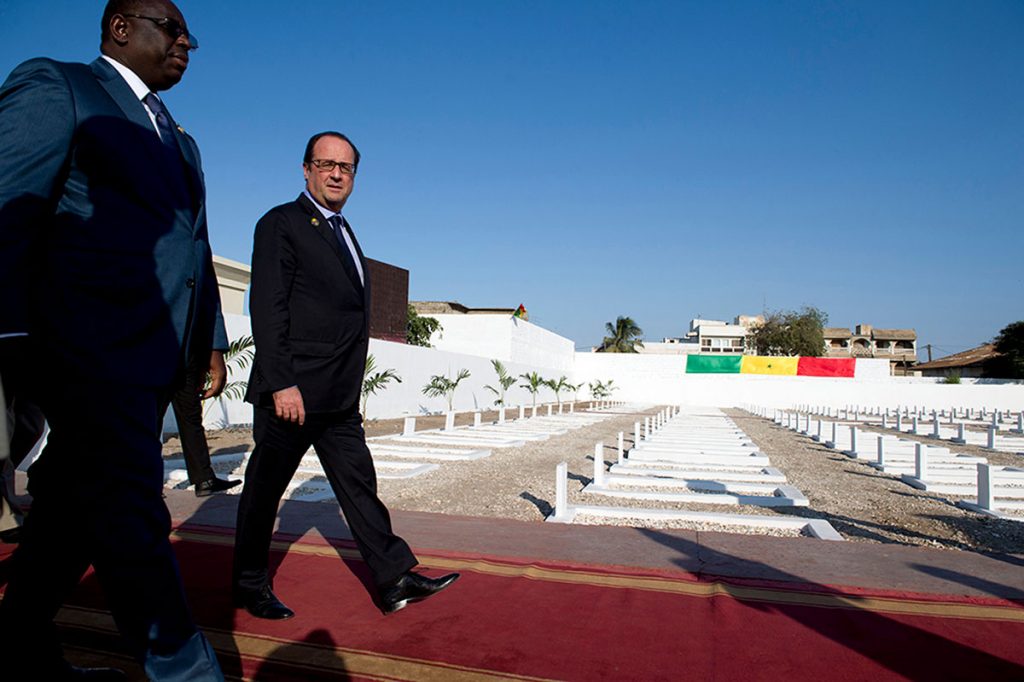
Islam and Colonial Rule
In the earliest phase of French conquest and pacification, Islam was presented as a conquering ideology in North Africa. From the conquest of Algeria (1830s onwards) to the colonisation of West Africa (broadly, with the exception of Senegal, from 1880s onwards), the dominant ideology remained intact from one set of administrators to the next.[25] For colonial administrators, Islam was seen as contaminating African modes of thought. It was argued that it was the duty of Europe, particularly France, to bring civilisation to the colonised. French administrators sought to manage the practice of Islam in their colonies, to bring the perceived resistance into lockstep with the French perception of modernity. The influences of Islam were systematically viewed as impediments to social progress.
For the French, there was no alternative history where Islam could have otherwise been accepted, adopted and integrated into African society. Africans needed to be rescued from the tyranny of Islam. The pioneers of this view, Octave Depont and Coppolani, claimed that the key to Islamic influence and acceptance lay in the sword, but more importantly in compromises with the local beliefs and customs.[26] Instead of attempting to impose a military solution on the Sufi Brotherhood, Depont and Coppolani set out to enlist the Sufi Brotherhood by attempting to collaborate and subvert the organisation from within. Harrison notes that the French acknowledged that attempts to destroy the Sufi Brotherhood by force in the past had failed. Instead, Depont and Coppolani argued that French administrators should:
… try and work with rather than against them. Discreet official sponsorship of education together with subsidies for the construction of lodges for the brotherhoods were favoured as the methods of gaining future political control. By faithfully pursuing such policies France would do much, they concluded, to remove the threat of a pan-Islamic rebellion and would be assured of a broad sweep of allies rather than having to rely on a handful of proven collaborators.[27]
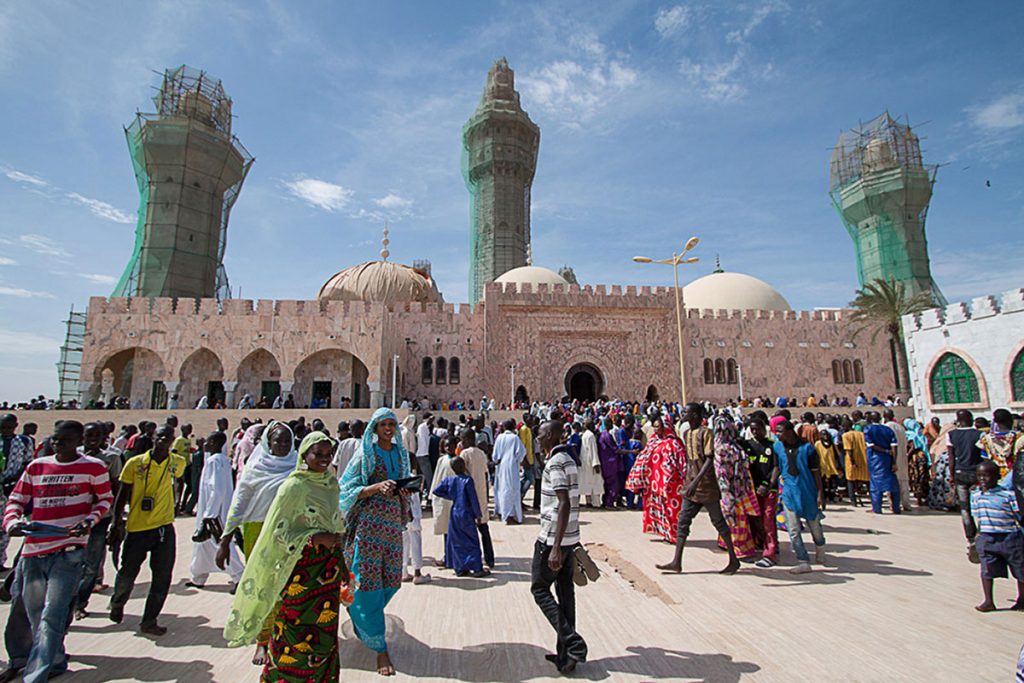
However, this view of Islam changed from the early 20th century onwards. There was a change in policy – from antagonism towards Islam to collaboration with Islamic representatives. This policy sought to distinguish the universal civilisations from local custom while managing social and cultural differences (pluralism).[28] The change in policy was not a smooth progression, however, and several contradictory policies were enacted to deal with the challenges that the French were faced with in the 1910s–1930s.
First, a policy was put forward where Islam was positioned as a civilising force for Africans. This attitude was reflected in the systematic attempts to build and elevate Islam above African religions. Second was the reduction of any forms of African expression and practice, which were derogatorily dismissed as “fetishism”. In the hierarchy of progress, Islam ranked higher than fetishism. For the French, who did not fully understand African religious practices, these beliefs and practices were signs of a lack of civilisation. In West Africa, confronted with increases in Qur’anic schools, French administrators advocated for the creation of alternative Islamic schools or madrasas. Alongside the attempt to assimilate the colonised into French culture, French administrators saw these developments as necessary steps towards the creation of a liberal pro-French Islam in Africa.[29]
The political objective was to bring the empire closer to Islam and to construct the ideological image of France as being a “Muslim power”, thus strengthening the legitimacy to rule Muslim subjects. When this failed, the French moved to isolate and attack Islam. Between 1908 and 1915, under the governorship of William Ponty, a crisis of rule emerged. This required immediate attention, at the same time as France became engulfed in World War I. The main question was how to establish order and what to do with Islam in West Africa. The answer, according to Ponty, was to brush Islam with the stigma of slavery.[30] Ponty advocated for a repositioning of France as the protector of the masses from the tyranny of Islam and the oppressive marabouts. All major marabouts had to be under surveillance and their activities monitored, and this information was shared across the vast confederations of French West Africa.
In Ponty’s politique des races (racial policy) – the riddance of racial hierarchy and suppression of those tribes that resisted, and a policy under which traditional chiefs would inherit much more security than they then possessed – he noted that the first phase of the conquest required the abolition of slavery and slave trade, and the second phase required the abolition of tyranny and ethnic exploitation.[31] According to Ponty: “We provoked this progression by abolishing slavery. Now we find ourselves obliged to abolish the hideous tyranny of kinglets and chiefs, whose authority from now on must depend on us and be based on our own domination.”[32] Donal Cruise O’Brien, a scholar on Islam in Africa, noted that the objective of this approach to containing the pan-Islamic movement was, among other things, the preservation of “ethnic particularism by ensuring that each ethnic group had chiefs appointed from its own people”.[33]
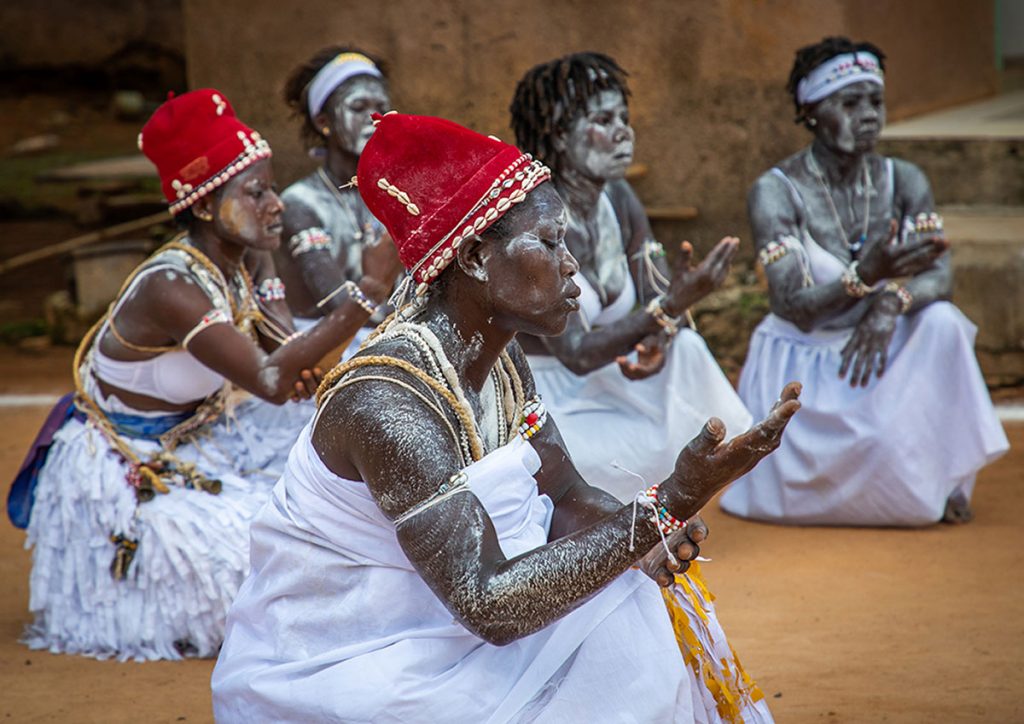
Another innovation was Ponty’s decree, issued in May 1911, which banned the use of Arabic in juridical and administrative matters. This shift moved French to become the language of the state and provided a point of emphasis in the protection of Africans from the contamination of Arab-Islamic influences. Then there was the development of l’Islam noir (black Islam)[34] as a counter to the North African form of radical Islam. Jean-Louis Triaud notes that in the context of French rule of sub-Saharan Muslims, l’Islam noir “connoted the idea of a degraded Islam tainted by animist practices and therefore different from the pure Islam practiced in Arab countries”.[35]
This development marked a powerful change in West Africa. The shift in policy represented a swing from a focus on the assimilés – those under the influence of a deliberate indoctrination in language and culture and the positioning of them as French citizens – to a concentration on the évolués – as noted earlier, Africans who had become “Europeanised” through education or assimilation. The latter were trained to work in administrative positions. The best-known example of this new class of educated Africans was Blaise Diagne, the first African elected to the French National Assembly, who served in that capacity for 20 years. Diagne defended the évolués as French citizens and was a pioneering advocate for equal rights for all, regardless of race.
According to French Empire historian Alice Conklin, governors Ernest Roume and Ponty’s responsibilities were to carry the mandate to civilise through assimilationist policies. However, their mandate was too vast and their resources very limited, so many plans involving economic development and infrastructure (ports and railways), hospitals and schools were never completed.[36] The major stresses caused by World War I and the post-war political, economic and military environment disrupted this policy direction. When failure was imminent, French policymakers had to come up with an alternate plan to legitimise their rule, as well as to reduce the cost involved with the colonial project. Resistance and economic cost weighed heavily on France and led to a systematic reduction of military expenditures.
The result of the reconciliation between the demand for a military presence in the colonies and the call to reduce military expenses led to the creation of various intermediary institutions to help alleviate the cost of the massive French presence in the region. There was a call to forge a strategic alliance with the Muslim leadership. This could be seen as a shift from direct to indirect rule, and it marked a departure from the perception of Islam as a threat to a modification that positioned Islam to suit the colonial project. In Algeria, this was the incorporation of the Sufi Brotherhood into the system during the 1920s and 1930s; in West Africa, it was evident in the close collaboration between marabouts and administrators. In Algeria, the invention of l’Islam noir was a way to distinguish between the forms of Islam practised by Arabs and that practised by Africans in French colonies. This methodology was also a way to contain and split North African radical nationalists from the West African group, define them separately and contain them collectively. This was important to the effort to prevent and fragment the unification of a force that the French feared would lead to disorder and their ultimate defeat, if containment failed. A political line was drawn to sever the relationships between North and western Africa.
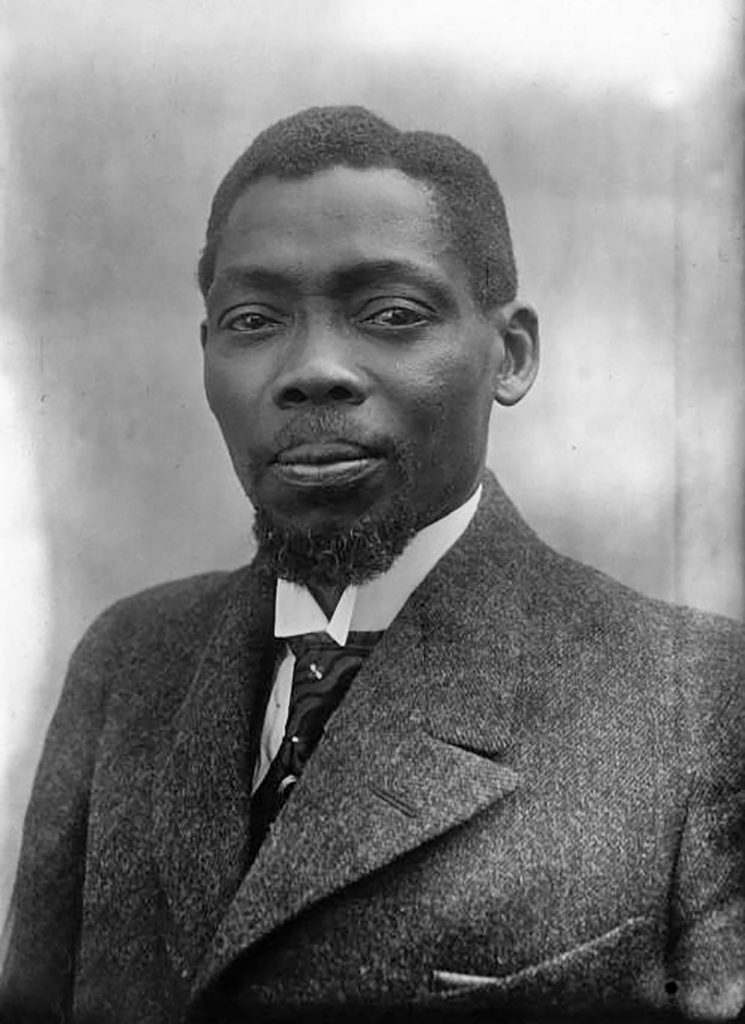
Rethinking the Mission Civilisatrice
As France continued to face opposition in its colonies, there was a call to rethink the mission civilisatrice (civilising mission). In her book, A Mission to Civilize: The Republican Idea of Empire in France and West Africa, 1895–1930, Conklin notes that “to be civilized was to be free from specific forms of tyranny: the tyranny of the elements over man, of disease over health, of instinct over reason, of ignorance over knowledge and of despotism over liberty”.[37]
The ideology of the conquest required a framing of Africans as subjects, not citizens, with duties but few rights. To this, Conklin shows that colonial statecraft was, in large part, an act of state-sanctioned violence.[38] The republican ideals of freedom, social equality and liberal justice were reserved for citizens only, not subjects. In spite of the contradiction between professed ideals and lived reality, the French republicans never saw the glaring contradictions between their democratic institutions and their imperial ambitions.[39] Conklin offers details of French colonial policy under the governors-general who administered the area from 1902 until 1930 in West Africa and the shift from assimilationist policies towards association.[40] Harrison, on the other hand, offers both the reality in the colonies and the policymaking in the cabinet and legislature in Paris, along with the ideas that were informing governance in West Africa.[41] “Association”, the idea championed by ethnologist Delafosse, called for the administration to work with African institutions, shaping them in subtler ways and co-opting them whenever possible, rather than trying to crush them by force, as was the case with the doctrine of assimilation.[42] However, James Searing shows that the relationship between imperial France and the African elites was a double-edged sword. Colonial chiefs acted as intermediaries between the colonial administration and the rural population. The chiefs also maintained underground patronage networks to safeguard their social status, whereas France viewed these chiefs as corrupt and oppressive to their societies. In French West Africa, some of the earlier counter-elites were those Muslim leaders who went on to replace the aristocracy as the community leaders in the countryside. The elites of the Four Communes, Senegal’s four oldest colonial towns in French West Africa, organised the earlier resistance movement to colonial occupation.[43]
A non-linear process unfolded between the centre and the periphery, between the lessons learnt and the transfer of those lessons to the reality on the ground. The effects of fear and paranoia of the unknown and the “other”, and how this influenced decisions and outcomes, were also components of the process. O’Brien notes that French colonial policy in Africa was not static. It depended on local context, politics in France and the preferences of individual local administrators, which varied with changing personnel.[44]
There were features of French policies that remained relatively stable. Among those was the attempt to divide and conquer the colonised. This was a long-running pursuit through physical and intellectual machinations to shape the subjectivity of local population, either through force or diplomacy or, as was often the case, assimilation – the management of social and cultural differences in what Mamdani calls a shift from direct to indirect rule.[45]
What emerged was a complex set of policies, contradictions and adjustments when crises arose between citizens and subjects. France was not always confident in its dealings, and displayed suspicions towards the intentions of the colonised.
Conclusion
This article revisits French colonial policy in West Africa by showing the adaptability of colonial administrators to local and global events. The original mission to civilise Africans and the non-Western world faced resistance at every turn – which, when combined with the impact of World War I, turned into a mission to establish law and order, containing the influence and mobilisation of Islamic leaders in West Africa.[46] The ideology of the conquest and colonisation of Africa required a framing of Africans as subjects with few rights, rather than citizens with duties.[47] The republican ideals of freedom, social equality and liberal justice were reserved for citizens, not subjects.
In the first period (1850–1898), French policies focused mainly on containing the Sufi Brotherhood. In the second period (1898–1912), French policies shifted to a focus on the conspiratorial roles of the Sufi Brotherhood and fears of Islam, and Islam was presented as a conquering ideology in North Africa. In the third period, French administrators faced resistance, and the colonial project had to be reconfigured. The final period was a reconfiguration of the colonial mission from assimilation to cultural preservation, and the notion of respecting and conserving traditional African systems, religions, customs and beliefs. This recomposition marked a turn from direct to indirect rule. However, the French still maintained an inclination towards assimilation, which was the precept of the mission civilisatrice.
In the aftermath of the crisis of empire, the French shifted focus from antagonism towards Islam to collaboration with Islamic representatives, from civilisation to conservation, and from progress to law and order, while managing social and cultural differences. Throughout the period of conquest, French imperial policy relied on political and intellectual thought produced in France and in the colonies by colonial administrators. Understanding the mechanisms and ideology of conquest requires that one engages with the system of knowledge production that informed, shaped and guided the colonial project in Africa.
All this becomes paramount when seeking to better comprehend the colonial rule that still exists in the world today. Nearly 20 non-self-governing territories – from the Falkland Islands to Bermuda, and from American Samoa to French Polynesia – have limited self-governance, with little or no control over their respective futures. Remnants of colonialism remain in these early decades of our 21st century. The protracted French imperial project in Africa, particularly the Federation of French West Africa, is thus an important case study in the lab of residual colonial research.
Dr Christopher Zambakari is Founder and Chief Executive Officer of The Zambakari Advisory. He is a Professor at the College of Global Studies at Cambridge Graduate University International.
Endnotes
[1] Leroy-Beaulieu, Paul (1898) De La Colonisation: Chez Les Peuples Modernes. Paris: Librairie Guillaumin et Cie; and Mantena, Karuna (2010) Alibis of Empire: Henry Maine and the Ends of Liberal Imperialism. Princeton, NJ: Princeton University Press.
[2] Conklin, Alice (1997) A Mission to Civilize: The Republican Idea of Empire in France and West Africa, 1895-1930. Stanford, CA: Stanford University Press; and Harrison, Christopher (1988) France and Islam in West Africa, 1860–1960. New York, NY: Cambridge University Press.
[3] Girardet, Raoul (1972) L’idée Coloniale En France De 1871 À 1962. Paris: La Table Ronde.
[4] Leroy-Beaulieu, Paul (1898) op. cit.
[5] Cited in Genova, James (2004) Conflicted Missionaries: Power and Identity in French West Africa during the 1930s. The Historian,66 (1), p. 45.
[6] Ibid.
[7] Maine, Henry Sumner (1960) Ancient Law: Its Connection to the History of Early Society; London, UK & New York, NY: J.M. Dent & Dutton; and Lugard, Frederick D. (1929) The Dual Mandate in British Tropical Africa. Edinburgh & London: William Blackwood & Sons Ltd.
[8] Mamdani, Mahmood (2012a) What is a Tribe? London Review of Books, 34, (17), pp. 20–22.
[9] Conklin, Alice (1997) op. cit.
[10] Mantena, Karuna (2010) op. cit., p. 190.
[11] Mamdani, Mahmood (2012b) Define and Rule: Native as Political Identity. Cambridge, MA: Harvard University Press, pp. 1–2.
[12] Ibid., p. 7.
[13] Mamdani, Mahmood (1996) Citizen and Subject: Contemporary Africa and the Legacy of Late Colonialism. Princeton, NJ: Princeton University Press, pp. 1–2.
[14] Maine, Henry Sumner (1960) op. cit.
[15] Mamdani, Mahmood (2012b) op. cit.
[16] Harrison, Christopher (1988) op. cit.
[17] Cahm, Eric (1996) The Dreyfus Affair in French Society and Politics. London, UK, New York: Longman. The Dreyfus Affair was a political scandal in France between 1894 and 1906. The scandal involved a Jewish artillery captain in the French army, who was accused and falsely convicted of treason in 1894 and sent to prison for selling military secrets to Germany. Dreyfus was ultimately exonerated in 1906 and reinstated to the French army.
[18] Sufism – known as tasawwuf in the Arabic-speaking world – is a mystical form of Islam and Islamic belief that emphasises the truth of divine love and knowledge through an inward-looking orientation. It shuns materialism and emphasises introspection and spiritual closeness with God. Sufism is organised into several brotherhoods or mystical orders and has been around since the Middle Ages.
[19] Mamdani, Mahmood (2012b) op. cit.
[20] Futa Jallon (or Fouta Djallon) is a mountainous region of west-central Guinea. It was organised as a Muslim theocratic state and later became part of the French colony of Guinea. The region vigorously resisted French expansion. In 1909, the murder of Bastié, the commandant of the Timbis cercle, set in motion a series of events that fed French suspicion of religious fanaticism. French colonial administrators believed the killing was religiously motivated by “religious fanaticism” and linked the attack to an elderly religious leader named Thierno Aliou, the “Wali of Goumba”. Aliou subsequently fled to the neighbouring colony of Sierra Leone, where he was arrested and brought to trial in Conakry. Harrison refers to the trial as a “mere exercise of cosmetic justice cooked up for metropolitan consumption”.
[21] Harrison, Christopher (1988) op. cit., p. 29.
[22] Andrews, Charles McLean and Kanya-Forstner, Alexander Sydney (1978) France, Africa, and the First World War. Journal of African History, 19 (1), pp. 11–23.
[23] Thomas, Martin (2012) Violence and Colonial Order Police, Workers and Protest in the European Colonial Empires, 1918–1940. Cambridge, UK, New York, NY: Cambridge University Press, pp. 211–238.
[24] Mamdani, Mahmood (2012a) op. cit.
[25] See Chapter II in Searing, James (1985) Accommodation and Resistance: Chiefs, Muslim Leaders, and Politicians in Colonial Senegal, 1890–1934. Princeton, NJ: Princeton University, ProQuest Dissertations Publishing, pp. 86–170, and discussion of “La Politique Indigene: 1915–19” on pp. 435–448.
[26] Harrison, Christopher (1988) op. cit., p. 21.
[27] Ibid., p. 22.
[28] Mamdani, Mahmood (2012a) op. cit.
[29] Harrison, Christopher (1988) op. cit., p. 64.
[30] Ibid., p. 50.
[31] Cited in Searing, James (1985) op. cit., pp. 239–240.
[32] Ibid.
[33] O’Brien, Donal Cruise (1967) Towards an ‘Islamic Policy’ in French West Africa, 1854–1914. Journal of African History, 8 (2), p. 314.
[34] Triaud, Jean-Louis (2014) Giving a Name to Islam South of the Sahara: An Adventure in Taxonomy. Journal of African History, 55 (1), pp. 3–15.
[35] Ibid., p. 3.
[36] Conklin, Alice (1997) op. cit.
[37] Ibid., p. 5.
[38] Ibid.
[39] Conklin, Alice (1998) Colonialism and Human Rights, a Contradiction in Terms? The Case of France and West Africa, 1895–1914. The American Historical Review, 103 (2).
[40] Betts, Raymond (1961) Assimilation and Association in French Colonial Theory, 1890–1914. New York: NY: Columbia University Press.
[41] Harrison, Christopher (1988) op. cit.
[42] Ibid., pp. 102–105.
[43] See chapters 3 and 4 in Searing, James (1985) op. cit.
[44] O’Brien, Donal Cruise (1967) op. cit., p. 303.
[45] Mamdani, Mahmood (2012b) op. cit.
[46] O’Brien, Donal Cruise (1967) op. cit.
[47] Conklin, Alice (1997) op. cit.

